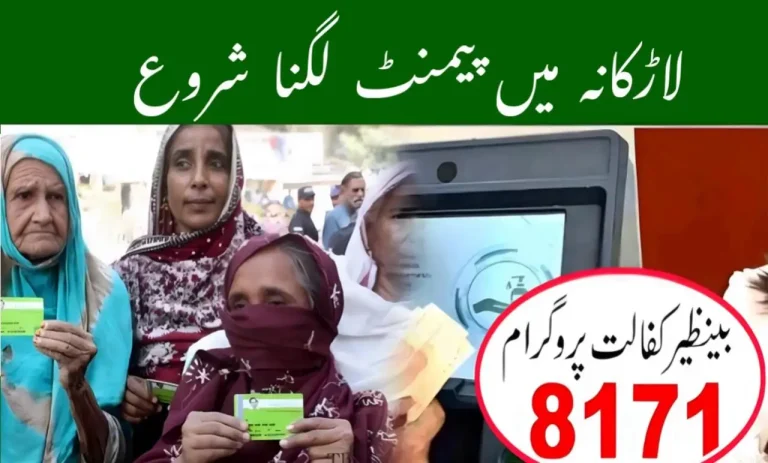Pakistan Energy Subsidies Shift to BISP Targeting

The government of Pakistan is making major changes to how it supports citizens with their electricity and gas bills. Instead of giving subsidies to everyone, it plans to focus only on families who truly need help.
This new method will work through the Benazir Income Support Programme (BISP), using its National Socio-Economic Registry (NSER) to find low-income households. Backed by international partners, this shift is meant to be smarter, fairer, and more effective.
Why Is the Current Subsidy System Being Changed?
In the past, everyone received energy subsidies—rich or poor. While the intention was good, the reality was different. Wealthier households often used more electricity and ended up getting more financial help than those with lower incomes.
This old approach caused several issues:
- Low-income families didn’t benefit enough.
- Government spending kept rising.
- Energy companies faced financial losses.
To fix these problems, the government is moving toward a targeted system that supports only those who actually need assistance.
What’s the New Plan?
The new policy is all about focusing support where it’s needed most. Here’s how it works:
1. Using BISP’s NSER Database
The NSER contains detailed information about families, such as income levels, number of dependents, and living conditions. This data helps identify which households are most in need.
2. Verifying Eligibility
By the end of 2025, the government aims to verify all potential recipients through this system.
3. Ending Blanket Subsidies
The current subsidy system, where everyone benefits, will be fully phased out by early 2027.
4. Providing Direct Help
Instead of reduced energy prices for all, only verified low-income families will get financial support—possibly through direct payments or discounted bills.
What About Gas Subsidies?
The same targeted model is being considered for gas users. A full plan is expected by mid-2026. This would ensure that both electricity and gas support systems are fair and focused on those who need them most.
Important Dates to Remember
| Timeline | Action |
|---|---|
| June 2025 | Final plan approval expected |
| December 2025 | Verification of low-income households |
| January 2027 | Launch of targeted subsidy program |
| June 2026 | Decision on gas subsidy targeting |
| Late 2025 | Quarterly progress reports begin |
How This Helps Families
If your household is listed in BISP as low-income, you may benefit from the new system. Here’s how it could help you:
- You’ll get direct support with energy bills.
- Subsidies will be more reliable and faster.
- Only those in need will receive help, making the system more fair.
- Less electricity waste will help the country save energy.
Saving Energy with Better Appliances
Along with subsidy changes, the government plans to set energy-saving standards for home appliances. This is known as the Minimum Energy Performance Standards (MEPS).
By mid-2027, appliances like fans, fridges, and air conditioners will need to meet these energy-efficiency rules. Also:
- Government offices will be required to buy energy-efficient appliances starting in 2025.
- Progress will be tracked with regular updates every three months.
Why MEPS Matter
Using energy-efficient appliances means:
- Lower electricity bills
- Less power demand
- Fewer blackouts
- More sustainable energy use
Global Support and Oversight
These reforms are supported by the IMF and World Bank, who are helping with:
- Technical advice
- Monitoring progress
- Designing fair payment systems
- Encouraging long-term planning
Their goal is to help Pakistan build a balanced and effective system for public spending.
Frequently Asked Questions (FAQs)
Who will get the new energy support?
Only low-income households confirmed through BISP’s database will qualify.
Will the current subsidy program stop?
Yes. The older system that gave benefits to all users will end by 2027.
Is gas included in the new plan?
Yes. A similar model for gas is being planned and should be ready by mid-2026.
What is MEPS?
MEPS are rules that ensure new appliances use less electricity and work more efficiently.
When will these changes begin?
Most of the groundwork will be done by the end of 2025. The new support system starts fully in January 2027.
Final Thoughts
Pakistan is moving toward a more focused way of helping families manage their energy costs. By using the BISP system to find those who truly need support, the government can make sure subsidies are fair and effective.
This change also helps save energy, reduce government costs, and improve services. It’s a big step toward fairness, efficiency, and a stronger economy.
Read this also : BISP 2025 Retail Payment Model: Easy, Safe & Transparent
Disclaimer: This article is for informational purposes only. We are not affiliated with any government agency. For official updates, visit the official BISP website.
This content is based on publicly available information. We are not affiliated with BISP or any government body. Read full disclaimer here





